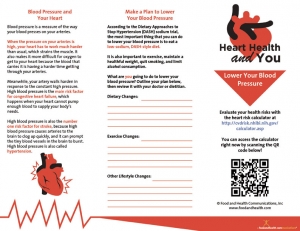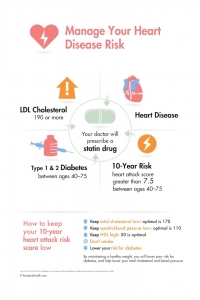Breaking News: Stroke Guidelines for Women
The American Heart Association has published new stroke guidelines for women in the journal Stroke. The article emphasizes addressing stroke risk earlier in women's lives and highlights some new areas for stroke prevention focus.According to the panel, "To more accurately reflect the risk of stroke in women across the lifespan, as well as the clear gaps in current risk scores, we believe a female-specific stroke risk score is warranted."We've outlined the key points of these new guidelines for you below...Prevention Guidance:
- Pregnant women (with a history of hypertension before pregnancy) may benefit from a small dose of aspirin in their second and third trimesters. This step may lead to a reduced risk of preeclampsia, which can in turn lead to stroke.
- Pregnant women with blood pressure between 150-159/100-109 may consider (safe for pregnancy) blood pressure medication options to reduce their stroke risk by lowering their blood pressure.
- Pregnant women with blood pressure of 160/110 or more should receive some form of treatment (that is also safe for pregnancy) to reduce their blood pressure as well.
Risk Factors:
- Since birth control pills can increase a woman's risk of stroke, women with high blood pressure should consider birth control methods. Hypertension screenings before birth control pills are begun could prove helpful.
- According to the article in Stroke, "the risk for stroke is higher in pregnant than in non-pregnant young women […] with the highest stroke risk occurring in the third trimester and post partum."
- Preeclampsia can now be considered a stroke risk factor in its own right. According to the article, A Woman's Guide to Stroke Prevention, "Preeclampsia confers twice the risk of stroke and four times higher risk of high blood pressure later in life. Its stroke risks last well after pregnancy."
- Atrial fibrillation is associated with an increased risk of stroke. Women ages 76 and older should be screened for it.
- Migraines with auras are another stroke risk factor.
According to the article, New Guidelines for Women Urge Early Attention to Stroke, "The good news is that treating high blood pressure in women dramatically reduces strokes. A recent analysis found that among women over 55, treating those with hypertension decreased the incidence of stroke by 38% and heart attacks by 25%. Other studies have found even more dramatic reductions in strokes when treating hypertension in African American women and women ages 30 to 54."These guidelines help establish the fact that a female-specific stroke risk score is warranted. They also emphasize earlier prevention strategies. How are you teaching your clients about stroke prevention?For More Information:
- Guidelines for the Prevention of Stroke in Women from Stroke
- A Woman's Guide to Stroke Prevention from Forbes
- Stroke Prevention in Women from Medical News Today
- New Guidelines for Women Urge Early Attention to Stroke from the L.A. Times
There are tons of high blood pressure and stroke prevention materials in the Nutrition Education Store. Which ones will make your job easier?




